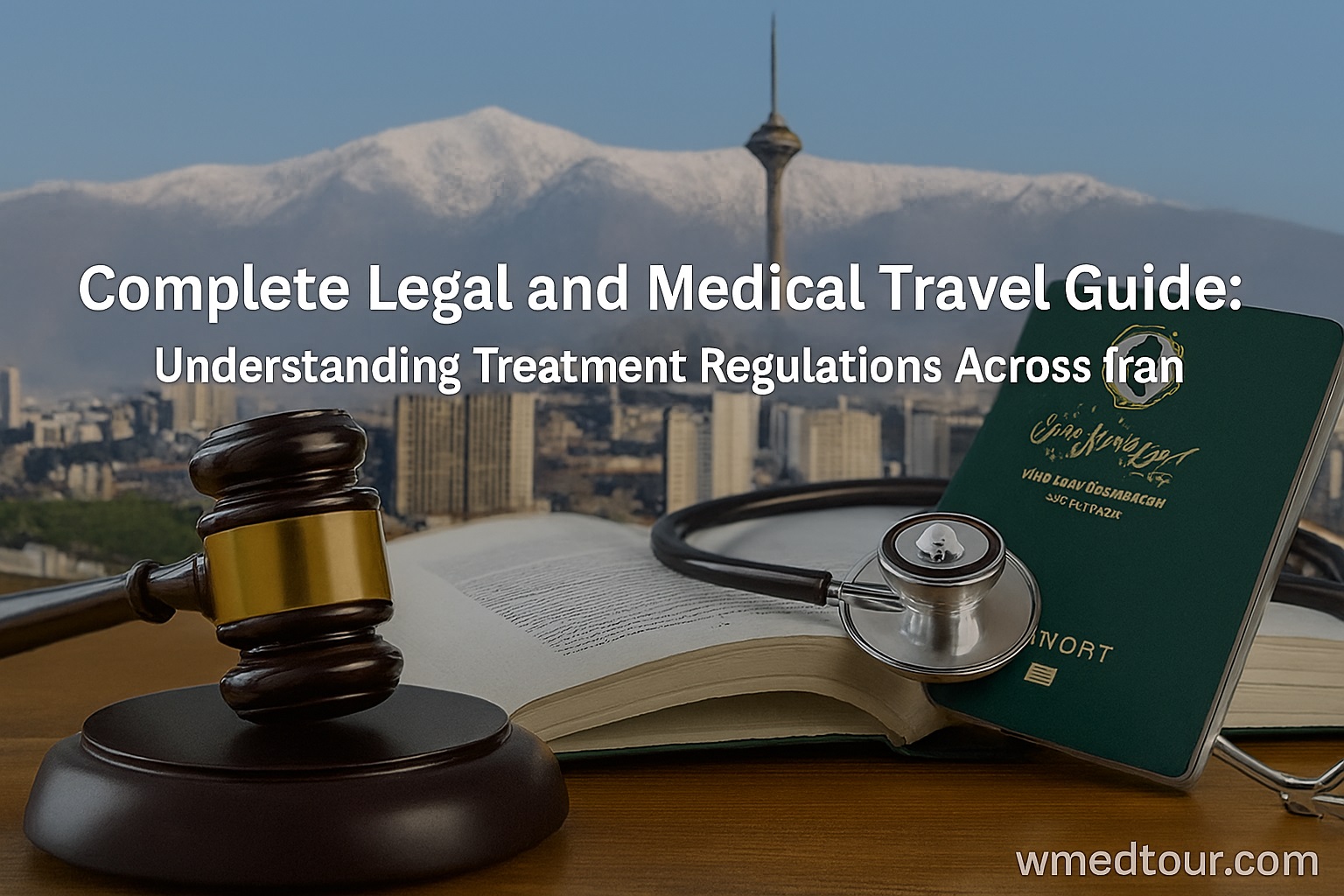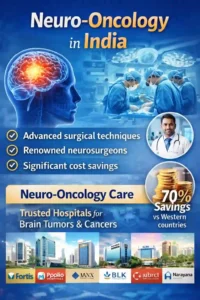Medical Travel Guide Iran Regulations: Complete Legal Guide
Embarking on international medical treatment is a monumental decision that requires exhaustive research and careful planning. To begin with, for many patients worldwide, Iran has emerged as a compelling destination, combining cutting-edge medical services with remarkably affordable costs.
Subsequently, this comprehensive resource serves as your definitive guide, providing clarity on everything from specific treatment rules to visa procedures. Ultimately, this authoritative Medical Travel Guide Iran Regulations resource covers the complete legal, cultural, and logistical landscape you need to navigate for a successful trip.
Executive Summary: Key Takeaways from the **Medical Travel Guide Iran Regulations**
Three main pillars define the journey of medical tourism to Iran: exceptional cost savings, high-quality specialist care, and a complex but manageable bureaucratic process.
Crucially, Iran’s private healthcare sector operates under stringent government oversight; they ensure international patients receive care comparable to Western standards, often at a fraction of the price.
Specifically, prospective patients must secure a medical visa (Type T) through an accredited facilitator. Moreover, understanding local cultural nuances—such as dress codes and social customs—is as vital as confirming your medical appointments.
This detailed Medical Travel Guide Iran Regulations aims to demystify these steps, offering a clear pathway for a safe and successful medical journey.

The Ascent of Medical Tourism in Iran
Iran’s reputation as a medical tourism hub is not accidental; decades of investment in specialized medical infrastructure and training created it. Consequently, the country boasts a high number of highly skilled specialists, particularly in areas like plastic surgery, fertility treatments, and complex oncology.
This blend of expertise and affordability draws thousands of patients annually, transforming cities like Tehran, Mashhad, and Shiraz into medical hotspots. Indeed, Iran consistently ranks among the top destinations globally for specific procedures due to this cost-quality balance.
Furthermore, the ethical standards for practitioners performing complex surgeries, such as cardiac bypass or lung cancer treatment, are robust. This assurance of quality powerfully influences the decision-making process.
Nevertheless, the primary challenge remains the geopolitical and financial complexity that often influences travel arrangements and payment processing. For this reason, partnering with a reliable medical tourism facilitator is practically mandatory to seamlessly navigate this lucrative, yet intricate, environment. This is why we created this essential Medical Travel Guide Iran Regulations document.
Legal Landscape: Understanding Iran’s Treatment Regulations
Navigating the legal framework for medical procedures abroad can be daunting, but Iran has established clear structures for international patients. Primarily, the Ministry of Health and Medical Education (MOHME) must accredit all hospitals and clinics catering to medical tourists.
This accreditation covers everything from the cleanliness of facilities to the qualifications of the treating physicians, ensuring that patients receive treatment that meets national benchmarks. As a result, The World Health Organization (WHO) recognizes the high standard of care available in many Iranian centers.
Significantly, for specialized procedures like organ transplants (which have distinct rules) or advanced oncology, a multi-disciplinary board often reviews patient files before it authorizes treatment for a foreign national. This added layer of regulatory scrutiny ensures patient safety and appropriate procedure matching.
In other words, patients must provide complete and authenticated medical records upfront. An agency simplifies understanding the specifics of the Medical Travel Guide Iran Regulations by handling direct communication with the MOHME and affiliated hospitals.
Pros of Iran’s Medical Regulations
- High Centralized Oversight: Strict MOHME accreditation ensures consistent quality in approved facilities.
- Legal Clarity: Established medical visa (Type T) and patient rights protocols for foreigners.
- Specialized Review Boards: Mandated review for complex procedures adds a safety check.
Cons of Iran’s Medical Regulations
- Bureaucracy: Documentation requirements can be extensive and time-consuming without assistance.
- Language Barrier: Official documentation is often in Farsi, necessitating certified translation.
- Sanctions Impact: International payment difficulties can complicate settling medical bills.
Visa Process: Navigating the Hurdles and Visa Problems
One of the most common logistical hurdles for medical tourists is managing the visa process. Standard tourist visas often prohibit patients from receiving extensive medical treatment, making the specialized Type T (Medical) visa essential.
Nevertheless, while Iran has streamlined the process, several potential visa problems can arise, primarily stemming from documentation gaps or lack of clear communication between the patient and the visa issuing authority.
The first step involves securing an invitation letter from an accredited Iranian hospital or a registered facilitator. This letter confirms the necessity of treatment. That said, Iran might offer a visa on arrival for citizens of certain countries, but for medical purposes, securing the Type T visa in advance provides stability and a longer duration of stay.
Furthermore, patients from the US, UK, and Canada must travel with an authorized escort or guide throughout their stay. To mitigate visa problems, start the application process well in advance, and utilize your medical facilitator to manage the submissions.
For instance, detailed guides on traveling to specific cities for procedures like Rhinoplasty in Tehran often highlight the crucial visa steps. Read more about Iran’s official visa policies.
Cultural Guide: Iranian Culture and Navigating Local Customs
Beyond the medical and legal aspects, the cultural environment of Iran plays a significant role in the patient experience. Iranian hospitality is legendary, characterized by warmth and a deep respect for guests, which often translates into an exceptionally empathetic clinical environment.
Conversely, visitors must observe fundamental cultural codes. To elaborate, modesty in dress is mandatory; women must wear a headscarf (hijab) and loose-fitting clothing that covers the arms and legs.
Public displays of affection are prohibited. In addition, the importance of family in healthcare decisions is paramount, and family members are commonly active in consultations and care. Understanding these elements enriches the overall experience and prevents unintentional offence, making the medical journey smoother.
This cultural context forms an indispensable part of any reliable Medical Travel Guide Iran Regulations resource. Learning basic Farsi phrases, though not essential due to widespread English speaking in medical centers, is appreciated and fosters goodwill.
Cost and Quality: A Comparison Guided by Iran’s Treatment Regulations
The economic appeal of the Medical Travel Guide Iran Regulations information is primarily driven by cost efficiency. Many procedures, including cosmetic and complex surgeries, are available at up to 70-90% lower costs than in North America or Western Europe, and often significantly cheaper than regional competitors like Turkey or India for similar quality levels.
It is important to note that this affordability does not reflect inferior quality but rather lower operational and labor costs within the country’s economic structure. Indeed, specialists in Iran, such as top Ophthalmologists or leading Urologists in Tehran, are highly trained, with many receiving certifications from European or American institutions.
Key Procedure Cost Comparison
| Procedure | Estimated Cost in Iran (USD) | Estimated Cost in Western Europe (USD) | Internal Link Reference |
|---|---|---|---|
| Rhinoplasty (Nose Job) | $1,500 – $3,500 | $8,000 – $15,000 | Rhinoplasty Price in Iran |
| Hair Transplant (FUE) | $1,000 – $2,500 | $5,000 – $12,000 | FUE Hair Transplant Cost |
| Breast Augmentation | $2,000 – $4,500 | $7,000 – $18,000 | Breast Augmentation Cost |
| Total Knee Replacement | $4,000 – $8,000 | $20,000 – $40,000 | TKR Procedure |
This stark price difference makes Iran an irresistible choice, especially when we weigh it against regional options. The cost comparison between Iran and Turkey for procedures like Rhinoplasty often heavily favors Iran, making it a budget-conscious yet quality-driven choice. As a consequence, patients find significant value here.
Case Study: Layla’s Journey to Tehran
Layla, a 45-year-old marketing executive from Germany, required complex neuro-oncology treatment which proved prohibitively expensive in her home country and involved long waiting lists. She used this guide to understand the essential elements of the Medical Travel Guide Iran Regulations.
Phase 1: Research and Planning: Layla first contacted a medical facilitator, and she shared her MRI scans and detailed medical history. The facilitator secured three quotes from accredited Tehran hospitals, including contact with a renowned neurosurgeon. First and foremost, they advised her on the treatment regulations across Iran for her procedure, which required a specialized consultation review.
Phase 2: Visa and Travel: The facilitator initiated the Type T visa application process. Layla received her invitation letter and secured her visa within three weeks. Upon arrival, a dedicated, English-speaking escort met her at the airport, ensuring all travel and cultural protocols were followed. Moreover, the escort handled all local transportation and logistics.
Phase 3: Treatment and Recovery: Her treatment was successful, and she completed her stay in a world-class private hospital. Post-operation, the recovery environment was supportive, with the hospital providing private, comfortable accommodation. The total cost, including flights, accommodation, and the entire medical package, was less than 30% of the quote she received in Germany. Ultimately, she saved substantially.
Layla returned home two months later, fully recovered. In conclusion, she cited the exceptional care and personalized attention as highlights of her medical journey. Academic research on the quality vs. cost ratio in Iran’s medical sector.
Who Needs This Medical Travel Guide?
This Medical Travel Guide Iran Regulations resource is specifically designed for three main groups:
- The Cost-Conscious Patient seeking high-quality care without the high price tag;
- The Specialist Seeker needing specific, advanced procedures (like complex hemato-oncology or uro-oncology) often provided by Iran’s leading experts;
- The International Professional (clinics, doctors, insurers) requiring detailed insights into the legal and logistical framework of treatment regulations across Iran for partnership or referral purposes.
Thus, the guide provides comprehensive information for all parties.
General Pros and Cons of Medical Travel to Iran
Key Advantages (Pros)
- Unbeatable Cost Savings: Significant financial relief for elective and necessary complex procedures.
- High-Quality Expertise: Globally recognized surgeons and specialists, particularly in cosmetic and oncological fields.
- Modern Infrastructure: Many private hospitals feature state-of-the-art equipment and facilities.
- Personalized Care: The Iranian hospitality culture translates into highly attentive, personalized patient care.
- Wide Range of Specialties: Availability of highly specialized treatments, including advanced Dermatology and Urological Surgeries.
Key Challenges (Cons)
- Visa and Travel Complexity: Requires specific documentation and planning for the Type T visa.
- Financial Transactions: International banking sanctions complicate money transfers and local payments.
- Cultural Adaptation: Strict dress codes and social customs require awareness and respect from visitors.
- Geopolitical Concerns: Potential perception of instability, though medical tourism areas are generally very safe.
- Follow-up Care Planning: Patients must meticulously plan post-operative recovery and long-term follow-up with home doctors.
For individuals, the advantages of accessing affordable, expert care often outweigh the logistical complexities, especially when they utilize an experienced facilitator. In short, many patients find the journey worthwhile.
Explore more articles on global medical tourism trends. Information for international partners.
Frequently Asked Questions (FAQ)
What is the primary visa required for medical treatment in Iran?
The primary visa required is the Type T, or Medical Visa. This must be secured with an invitation letter from an accredited Iranian hospital or a registered medical tourism facilitator.
Are women required to wear the hijab during their medical trip to Iran?
Yes, women, including all foreign tourists, are legally required to wear a headscarf (hijab) and modest, loose-fitting clothing that covers the body in public spaces throughout their stay.
How reliable are the ‘treatment regulations across Iran’ for foreign patients?
The regulations are highly reliable and enforced by the Ministry of Health and Medical Education (MOHME). Hospitals treating foreigners must meet specific accreditation standards, guaranteeing quality control.
Can I travel to Iran for medical treatment if I am a US, UK, or Canadian citizen?
Yes, but citizens of these countries must enter with an approved visa and must be accompanied by an authorized Iranian guide or escort throughout their entire visit.
What is the primary reason for the low cost of medical procedures in Iran?
The lower cost is primarily due to Iran’s favorable exchange rates and lower operational costs, not due to compromised quality. Labor and facility overhead are significantly lower than in Western nations.
Do I need medical insurance for treatment in Iran?
While not always legally required, securing international travel or medical complication insurance is highly recommended. Some medical facilities may require proof of coverage.
Is the medical staff fluent in English?
In accredited hospitals and clinics catering to medical tourists, the doctors, surgeons, and dedicated patient coordinators typically speak fluent English to facilitate clear communication.
How long does the Medical Visa (Type T) typically take to process?
Processing times vary, but with an official invitation letter, it usually takes between two to six weeks. Starting the process early with a facilitator is key to avoiding travel delays.
What is the preferred method of payment for medical services?
Due to international sanctions, direct credit card use can be unreliable. Most patients pay via international bank transfer (managed by the facilitator) or in cash (USD or Euros) upon arrival.
Is a pre-treatment consultation with the surgeon mandatory?
Yes, for complex procedures, a video consultation is typically mandatory before arrival. A physical consultation upon arrival is also required before the procedure is finalized.
Can I bring a companion with me on my medical trip?
Absolutely. It is highly encouraged, and the medical visa process allows for a companion to apply for a standard tourist visa to travel with the patient.
Which procedures is Iran most famous for?
Iran is internationally renowned for cosmetic surgeries, especially rhinoplasty, as well as complex oncology, fertility treatments like IVF, and specialized ophthalmology procedures.
What steps are involved in securing a spot for specialized treatment?
The main steps are submitting medical records, receiving a treatment plan and quote, obtaining the official hospital invitation letter, securing the Type T visa, and arranging travel logistics.
What is the general level of hygiene in Iranian medical facilities?
Private, internationally accredited hospitals maintain very high standards of hygiene and sterilization that often meet or exceed international health benchmarks, due to strict MOHME rules.
Are medical services available 24/7?
Major accredited hospitals provide 24/7 emergency and specialist services, mirroring operations in high-tier hospitals globally.
Can I use my prescription medications from home?
Yes, but you must carry the medications in their original packaging, along with a doctor’s prescription detailing the usage and necessity. Be aware that some specific medications may be restricted.
How does the culture of Iranian hospitality benefit medical tourists?
The culture emphasizes warmth, respect, and duty towards guests. This translates to highly empathetic and dedicated staff who often go above and beyond to ensure the patient’s comfort and well-being.
Are there specific treatment regulations for organ donation involving foreign nationals?
Yes, organ transplant regulations are extremely strict and generally only permit transplants for foreign nationals from living, non-Iranian, related donors, with intensive legal and ethical oversight.
Is it safe to travel within Iran for medical tourism?
Yes, the major cities frequented by medical tourists (Tehran, Mashhad, Shiraz) are considered very safe, with low crime rates. Professional facilitators provide secured transportation and guides for added safety. Always check official government travel advisories.
What are the common travel challenges beyond the visa?
Common challenges include navigating the cash-based economy (due to banking issues), dealing with the language barrier outside of the hospital, and adjusting to the cultural requirements.
How do I ensure the doctor is qualified?
All accredited medical tourism facilitators provide detailed resumes of the doctors, which include their MOHME certifications, international training, and surgical experience, often for specialists like top dermatologists or plastic surgeons.
Can I combine my medical trip with sightseeing?
Yes, it is common and encouraged. Most itineraries include designated recovery periods that allow for light sightseeing. Facilitators often offer custom tour packages to historical sites like Isfahan or Shiraz.
What role does the medical facilitator play in managing treatment regulations across Iran?
The facilitator acts as a crucial intermediary, managing all regulatory documentation, securing hospital appointments, handling visa logistics, and ensuring compliance with local laws and ethical standards.
Are follow-up appointments included in the package cost?
Typically, yes. Most medical tourism packages include necessary short-term follow-up visits and consultations before the patient departs the country.
Are there options for advanced cancer care in Iran?
Yes, Iran is emerging as a regional leader in oncology, offering advanced care for Head and Neck Cancer and Pediatric Cancer, often incorporating modern radiation and chemotherapy protocols.
View all available treatment locations. Emergency travel options. Comprehensive health checkups.
Conclusion: Taking the Next Step
The decision to pursue medical treatment abroad is serious, but for those seeking world-class care at accessible prices, Iran presents a compelling case. First of all, this comprehensive Medical Travel Guide Iran Regulations has highlighted the robust regulatory environment, the critical need for a Type T visa, and the enriching cultural context that awaits.
To summarize, by prioritizing preparation and utilizing accredited resources, patients can confidently access the specialized expertise of Iran’s top doctors and clinics. Overall, the established frameworks for managing the entire patient journey—from initial consultation to post-operative follow-up—ensure a safe, ethical, and effective medical experience.
Official Ministry of Health of Iran Website (MOHME). Global Medical Tourism Trends Study.
Ready to Plan Your Medical Journey?
Don’t navigate the legal, visa, and treatment processes alone. Our experts specialize in managing the entire medical tourism journey to Iran, ensuring you receive the highest standard of care with zero hassle.




